Evidentiary Dilemmas
Tuesday 22 October 2013, 7:00pm
apexart
291 Church Street
New York, NY 10013
USA
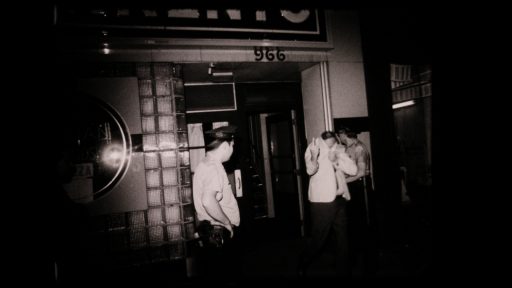
In Evidentiary Dilemmas, a series of films document conversations, collect facts and catalogue statements. While some are personal, domestic, or familial, others are judicial, deal with historical moments and hearsay. Altogether these works are an assemblage of documentation and (para-)fiction. Initially, the uncanny assertion is made that the factual nature of what we see – or perhaps don’t see – will provide stability; the stability of knowing. But the greater the burden of the facts, the more unsettling the head-on confrontation gets with not knowing. Unable to bare the discomfort, one strategy may be to settle into disorientation as an honest state that comes with its own rewards.
With films by Miranda Pennell, Brian Frye, Marwa Arsanios, Walid Raad, Josh Weissbach, and Ted Kennedy.
Selected by Minou Norouzi in conjunction with the apexart exhibition ‘Death of a Cameraman’ curated by Martin Waldmeier. Minou Norouzi is a moving image artist based in London. minounorouzi.com
Death of a Cameraman deals with specific questions surrounding Syria and the politics of image-making including works by Broomberg & Chanarin, Harun Farocki, Rabih Mroué, Hrair Sarkissian, Rudolf Steiner. For more info visit apexart or see The New York Times review.
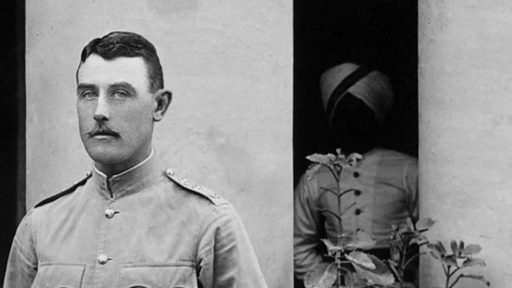
Why Colonel Bunny Was Killed | Miranda Pennell | UK 2010 | HD | 27 min
The memoirs of a medical missionary on the Afghan borderlands provides the starting point for a film constructed from still photographs of colonial life on the North West frontier of British India at the turn of the 20th century. The film plays sound against image in a search for clues as to the stories behind images and finds striking continuities in Western portrayals of a distant place and people. In defiance of post-humanist tendencies Pennell searches for evidence of the other and re-structures the act of looking under her own terms.
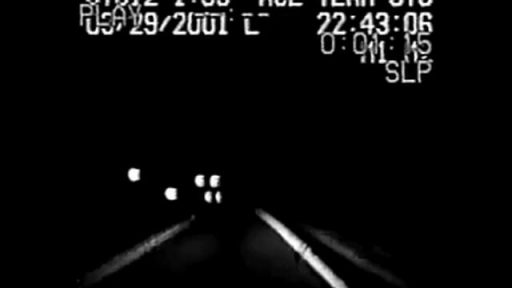
A Reasonable Man | Brian L. Frye | 2011 | Video | 16 min
In March 2001, a Georgia police officer observed Victor Harris speeding and initiated pursuit. Deputy Timothy Scott joined the pursuit and intentionally collided with Harris, who crashed and was rendered a quadriplegic.
Harris sued Scott, alleging that Scott used excessive force because the pursuit did not endanger the public. Scott responded that the pursuit did endanger the public, and submitted two videotapes of the pursuit.
The trial court held that a jury should decide the case because the parties disagreed about a question of fact: whether the pursuit endangered the public. In Scott v. Harris (2007), the Supreme Court reversed 8-1, holding that the videotapes conclusively disproved Harris’s version of the facts.
“A Reasonable Man” uses the videotapes submitted by Scott and excerpts from the oral argument before the Supreme Court to consider how courts have evaluated one kind of motion picture evidence.
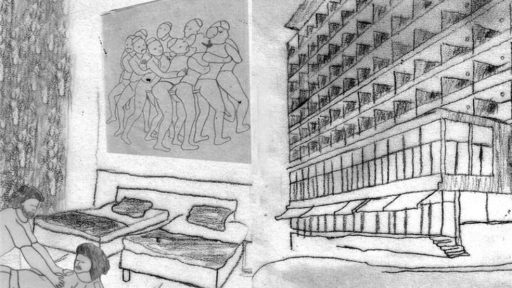
I’ve heard Stories | Marwa Arsanios | Lebanon 2008 | HD | 5 min
This short animation explores various ways to narrate an incident that once took place in the mythical Hotel Carlton. Against images of the deserted hotel today, the artist sketches situations that evoke the rumors that once circulated around the place and the people who inhabited it.
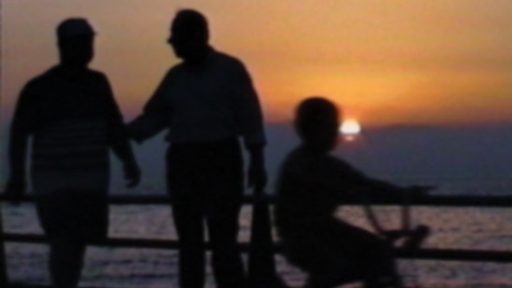
I Only Wish I Could Weep | Walid Raad | USA 1997/2002 | Video | 7 min 40s
This document is attributed to Operator #17, a Lebanese Army intelligence officer who was assigned to monitor the Corniche, a seaside boardwalk in Beirut. From 1997 on, the officer decided to videotape the sunset instead of his assigned target. The videotape recounts the operator’s story and concentrates on the footage he was permitted to keep after his dismissal.
Courtesy of Paula Cooper, New York
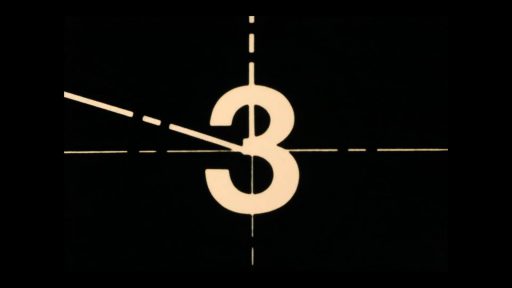
2843 Colborne St. E | Josh Weissbach | USA 2012 | 16mm to video | 11 min
An audio visual piece which relies on one’s ability to listening and simultaneously points at the fragility of relying on what we see – or as it may be, not see as meaningful or stable witness.

Pittsburgh 8/5/68 | Ted Kennedy | 2013 | 16mm to video | 2 min 30s
Pittsburgh 8/5/68 is part of a series of films based on the original 16mm camera rolls from a Pittsburgh TV news station during 1968/69 depicting a police raid at Erectors Club set against “Turn Around, Look At Me” by The Vogues.